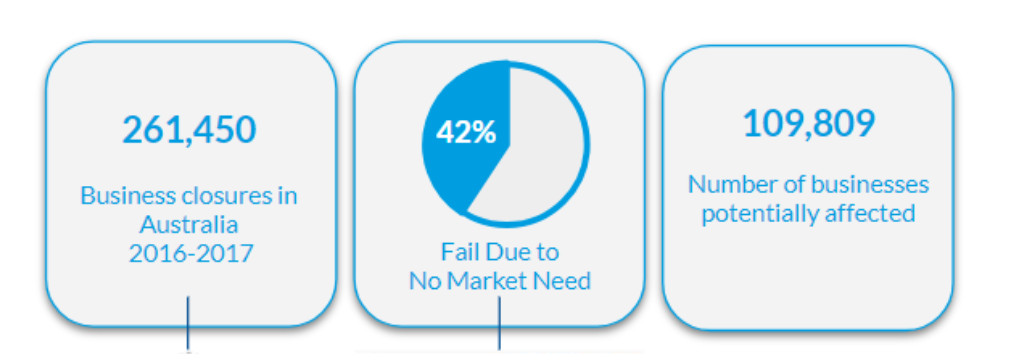Startups are now the norm of everywhere with million-dollar ideas popping up. Most entrepreneurs think that their product is the unique one which is also the reason that most startups fail. Statistics indicate that more than 90% of startups fail within three years of their launch. Intelligent entrepreneurs often learn from the mistakes of their peers and build a successful startup.
Here is the list of common mistakes as to why startups fail:
#1 Little or no market
startups fail because their product might have little or no market need for their product. The product’s timing also plays a crucial role in its success or failure. Some of the prominent reasons that indicate this fact is:
- There is no compelling need for the end user to buy the product.
- The product lacks supporting tools that make it indispensable to the customer
- The timing is not correct meaning there is a similar product or it is ahead of the market by a few years.
- The end demographic is available, but the startup does not have the necessary funds to capture them.
#2 Business model failure
Business models are the framework of every business that predicts its marketability and economic viability. Most entrepreneurs lose focus of their business model by focusing more on the product. It also happens when the entrepreneurs are ignorant of its nuances. Most startups fail because they fail to recognize the cost involved in acquiring customers or have no scalable value to obtain and maintain customers.
Solution: The startups should find the answer to these following questions before diving full-fledged into production:
- Can they find a scalable way to acquire end users?
- Will the customer’s lifetime monetary value be significantly higher than the acquiring cost?
#3 Management team’s efficiency
Lack of efficient managerial squad is also one of the reasons as to why startups fail. Some of the common causes that indicate weak management are:
- They fail to strategize by not keeping long-term goals in mind.
- Their market capturing strategies are often ill-timed or not well researched.
- They are usually poor at execution when it comes to product build-up and launch.
- The whole team lacks in the communication aspect and are not capable.
Solution:
- Data should be driving reason behind decisions.
- Everybody is answerable for their actions
- Over-communication is better than little or no communication.
#4 Cash becomes a constraint
This one of the most significant reasons as to why startups fail within their initial years. The primary responsibility of a CEO or a CFO is to ascertain the financial needs. Some entrepreneurs fail to maintain a record of cash inflow and outflow ultimately leading to a cash crunch. Startups that are funded by private investors or equity firms need to be aware that they are responsible for showing a decent Return On Investment (ROI).
Solution:
- Keeping a thorough record of the startup’s financial accounts
- Explore and secure funding options to keep the business afloat
- Build a network of investors.
#5 Product Doesn’t Fit The Market Needs
The fifth reason why startups fail is failing to build a product that the market requires. However, it could also be if the product was poorly marketed. Additionally, the startup’s product might not fit the market needs, but a few upgrades/downgrades will do the needful. Sometimes, an event the whole product might need revamping.
Solution:
- Marketing should start along with the product’s vision and production.
- The marketing team should involve themselves in product development
- They should apprise the production team about the market sentiments.
These are five significant reasons as to why startups fail in their early days. On the whole, if the entrepreneur is mindful of these causes and takes the necessary steps, then they can be highly successful.






 Start using ZapInventory today
Start using ZapInventory today
